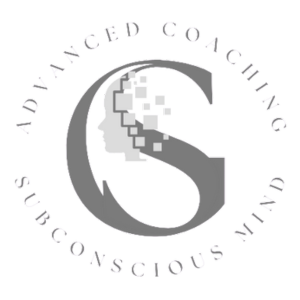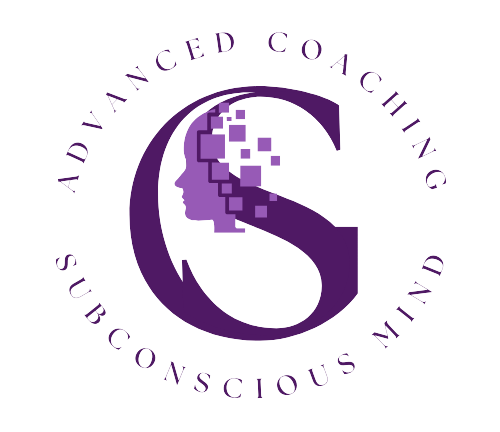Blogs

Emotional Intelligence
Emotional intelligence is a critical component of human intelligence that goes beyond traditional measures of intellectual ability. It involves the capacity to recognize, understand, manage, and harness our own emotions, as well as those of others, to build healthier relationships, navigate challenging situations, and achieve personal and professional success.
In this blog, we will explore the concept of emotional intelligence in detail, including its importance, key components, and strategies for cultivating EQ.
What is Emotional Intelligence?
Emotional intelligence, or EQ, is the ability to recognize, understand, manage, and use emotions effectively, both in oneself and in others, to navigate social situations, build relationships, and make more informed decisions. It involves a set of emotional and social skills that contribute to personal and interpersonal success
Furthermore, it includes the ability to empathize with others, effectively communicate, and build strong, meaningful relationships. In essence, emotional intelligence enables individuals to harness emotions as a valuable resource in their personal and professional lives, leading to improved social skills, decision-making, and overall well-being.
Here are some reasons why EQ is crucial:
1. Better Interpersonal Relationships:
High emotional intelligence enables individuals to understand the emotions and needs of others, leading to more effective communication and empathy. This, in turn, fosters healthier and more harmonious relationships.
2. Conflict Resolution:
People with strong EQ are better equipped to manage conflicts and disagreements. They can navigate challenging situations with composure, seeking solutions that benefit everyone involved.
3. Leadership Skills:
Effective leaders often possess high emotional intelligence, as they can inspire, motivate, and connect with their team members on a deeper level. They understand how to manage their emotions and those of their team to create a positive and productive work environment.
4. Self-Awareness and Self-Regulation:
Emotional intelligence helps individuals become more self-aware, enabling them to recognize their strengths and weaknesses. This self-awareness leads to better self-regulation, allowing people to control their impulses and manage stress effectively.
5. Adaptability:
EQ helps individuals adapt to change more easily. They are more resilient in the face of adversity and can respond to unpredictable circumstances with a positive attitude.
Key Components of Emotional Intelligence
Emotional intelligence comprises several key components that work together to create a well-rounded understanding of one's emotions and the emotions of others. The five major components of EQ are:
1. Self-Awareness:
Self-awareness is the foundation of emotional intelligence. It involves recognizing your own emotions, strengths, weaknesses, values, and motives. People with high self-awareness have a clear understanding of how their emotions impact their thoughts and actions.
2. Self-Regulation:
Self-regulation is the ability to manage and control one's emotions and reactions. It enables individuals to stay calm under pressure, think before acting, and avoid impulsive decisions.
3. Motivation:
Motivation in the context of EQ refers to the ability to set and work toward personal and professional goals. It involves a drive to achieve, a desire for self-improvement, and resilience in the face of setbacks.
4. Empathy:
Empathy is the capacity to understand and share the feelings of others. It requires active listening and a genuine interest in understanding the perspectives and emotions of those around you.
5. Social Skills:
Social skills involve the ability to navigate social situations effectively, build relationships, and communicate with others. This includes skills such as effective communication, conflict resolution, and teamwork.
Cultivating Emotional Intelligence
The good news is that emotional intelligence is not a fixed trait. It can be developed and improved over time with practice and self-awareness. Here are some strategies to help you cultivate your EQ:
1. Self-Reflection:
Start by becoming more self-aware. Reflect on your emotions, triggers, and how you react in different situations. Journaling can be a valuable tool for this purpose.
2. Practice Mindfulness:
Mindfulness meditation can help you stay present in the moment and observe your emotions without judgment. This practice enhances self-awareness and self-regulation.
3. Develop Empathy:
Practice active listening and try to understand the perspectives and feelings of others. Engage in open and honest conversations, and ask for feedback to improve your empathetic skills.
4. Manage Stress:
Learn to manage stress effectively through relaxation techniques, exercise, and healthy lifestyle choices. Stress management is crucial for self-regulation and clear thinking.
5. Seek Feedback:
Encourage friends, family, and colleagues to provide honest feedback about your emotional intelligence. This can help you identify areas for improvement.
6. Build Relationships:
Work on your social skills by networking, joining social groups, and participating in team activities. Building strong relationships is a cornerstone of EQ.
7. Set Goals:
Develop a clear sense of purpose and set both short-term and long-term goals. Motivation is a significant component of emotional intelligence, and having goals can provide direction and focus.
Conclusion
Emotional intelligence is a powerful and essential skill for personal and professional growth. It empowers individuals to better understand themselves and others, navigate challenging situations, and build strong, meaningful relationships.
By focusing on self-awareness, self-regulation, empathy, motivation, and social skills, you can actively cultivate your EQ. As you develop your emotional intelligence, you'll find that it has a positive impact on your life in many ways, from improved relationships to greater success in your career.
FAQs:
1. What is Emotional Intelligence (EQ)?
Emotional intelligence, often abbreviated as EQ, refers to the ability to recognize, understand, manage, and navigate emotions, both in oneself and in others. It encompasses skills like self-awareness, self-regulation, social awareness, and relationship management.
2. Can Emotional Intelligence be developed and improved?
Yes, emotional intelligence can be developed and enhanced over time. While some individuals may have a natural inclination for certain aspects of EQ, such as self-awareness, anyone can work on improving their emotional intelligence through self-reflection, mindfulness practices, seeking feedback, and continuous learning.
3. What are the benefits of high Emotional Intelligence in the workplace?
High emotional intelligence is highly valuable in the workplace. It can lead to improved teamwork, better communication, and more effective leadership. It also helps in conflict resolution, stress management, and decision-making.
Individuals with strong EQ often create positive work environments and can motivate and inspire their teams more effectively.

2025
Ready to leap into a life of empowerment, balance, and unparalleled fulfillment? Your transformative journey awaits! Take the first step!
PERSONAL BREAKTHROUGH
AND HAPPINESS COACH
"Inner Growth Academy"
Grigoriou Theologou 1, Kapsalos, 3087,
Limassol, Cyprus
Email : [email protected]
Phone : +357 96 380 994
2025 ALL RIGHTS RESERVED
GINTARE SIDO -
MANIFESTATION BREAKTHROUGH COACH
Email : [email protected]
Phone : +357 96 380 994
Ready to leap into a life of empowerment, balance, and unparalleled fulfillment? Your transformative journey awaits! Take the first step!

